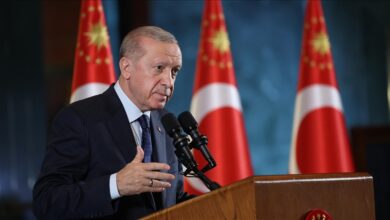
Guterres warns against using enforced disappearances to stifle dissent
UN Secretary-General Antonio Guterres has warned against using enforced disappearances as a means of repression, terror and stifling dissent.
This came in a statement issued by his spokesman on the occasion of the International Day of Victims of Enforced Disappearances, corresponding to August 30 of each year.
“Enforced disappearance, while strictly prohibited under international human rights law in all circumstances, continues to be used around the world as a means of repression, terror and stifling dissent,” Guterres said, according to the statement.
He added, “Ironically, it is sometimes used under the pretext of fighting crime or terrorism, and lawyers, witnesses, political opposition and human rights defenders are particularly at risk of enforced disappearance.”
Guterres noted that enforced disappearances “deprive families and communities of the right to know the truth about their loved ones, accountability, justice and reparations.”
He stressed the need for “all states to fulfill their obligations to prevent enforced disappearances, search for victims, investigate, prosecute and punish the perpetrators.”
And he added, “On this International Day, I reiterate my call to all states to ratify the International Convention for the Protection of All Persons from Enforced Disappearance and to cooperate with the United Nations Committee and the Working Group on Enforced Disappearances.”
The International Convention for the Protection of All Persons from Enforced Disappearance is an international document whose purpose is to prevent enforced disappearances defined in international law as well as crimes against humanity.
This agreement was adopted by the United Nations General Assembly on December 20, 2006 and entered into force on December 23, 2010.




